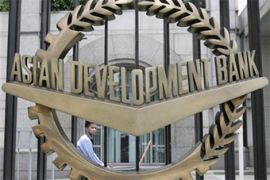Despite Indonesia`s slow economic growth due to the global economic slowdown, Martowardojo claimed that the growth was still considered relatively high at 4.56 percent in the second quarter of 2015.Jakarta (ANTARA News) - Indonesia has earned the recognition of multinational institutions due to its efforts to improve financial market stability to resist the current global economic turbulence, stated Governor of Bank Indonesia, the nations central bank, Agus Martowardojo.
Martowardojo noted in his remarks at the Joint IMF-Bank Indonesia conference on Future of Asias Finance: Financing for Development 2015 here on Wednesday, that Bank Indonesias policy to reverse some measures relating to foreign exchange transaction by obligating the business sector to pay in rupiah instead of foreign exchange had yielded positive results towards achieving financial market stability.
"These positive achievements have gained the recognition of several multinational institutions. Standard and Poors (Rating Services) has revised Indonesias rank outlook from stable to positive in May 2015," he noted.
The policy was implemented to strengthen the rupiahs currency, which touched Rp14 thousand per US dollar as a result of the Chinese yuans devaluation, the FEDs plan to revise its interest rate, and the low prices of global commodities.
Martowardojo affirmed that Indonesias strong financial system was supported by the resilience of the banking sector and a relatively stable financial market.
Furthermore, in a bid to enhance the countrys macroeconomic stability, Bank Indonesia has introduced prudential measures, wherein the business sector would have access to foreign debt to conduct hedging to reserve adequate foreign exchange liquidity.
Despite Indonesias slow economic growth due to the global economic slowdown, Martowardojo claimed that the growth was still considered relatively high at 4.56 percent in the second quarter of 2015.
"Indonesias macroeconomy remains safe and is showing signs of improvement as indicated by the improving current account deficit and trade balance surplus in 2015, and the inflation rate that is still under the Bank Indonesias target of 4 give or take 1 percent in 2015," he emphasized.
Representatives of some of the central banks of Asian countries such as Cambodia, India, Japan, Laos, and Sri Lanka as well as prominent Asian economists and financial market investors attended the Joint IMF-Bank Indonesia conference.
The conference discussed new financing modalities for the regions dynamic emerging market economies.
IMF Managing Director Christine Lagarde participated in the conference to deliver the initial remarks and to be one of the panelists on the financing for development discussion.(*)
Editor: Heru Purwanto
Copyright © ANTARA 2015











